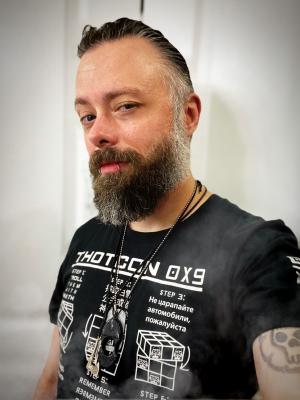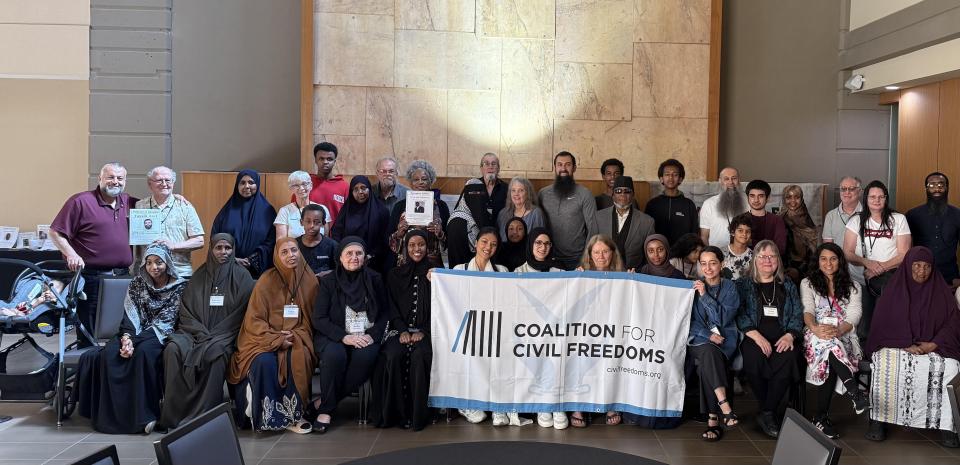
About Us
Our Story
The Coalition for Civil Freedoms (CCF) has its origins in the handwritten notes of a political prisoner, smuggled to his attorney while awaiting trial in the Special Housing Unit of a maximum security federal prison. In 2003, professor and prominent political activist, Sami Al-Arian, was arrested on politically-motivated “terrorism” charges of which a jury refused to convict after a six-month-long trial. Despite his innocence, Al-Arian would spend most of the next decade in solitary confinement and under house arrest fighting for his freedom.
Knowing that there were others like him who were targeted unjustly for exercising their civil rights, and family members who were often abandoned by their communities, Al-Arian spent much of his time in prison drafting a vision for an organization that would support political prisoners and their families.
In 2010, leaders of prominent civil rights groups across the country such as the National Lawyers Guild and Center for Constitutional Rights, as well as local grassroots organizations defending victims of America’s domestic “War on Terror” such as Project SALAM, Friends of Human Rights, and the Muslim Legal Fund of America, convened at Al-Arian’s apartment in D.C. where he was still under house arrest. Along with former prisoners and family members, they discussed the post-9/11 crackdown on political dissent, the criminalization of Muslim communities, and the cruel and unusual treatment of America’s growing population of political prisoners.
Al-Arian’s prison notes, along with input from these organizations who were willing to center the needs of political prisoners and their families, became the building blocks of a new coalition focused on ending the abuses of the “War on Terror.” In working directly with and empowering family members to advocate for their imprisoned loved ones serving harsh sentences and facing inhumane treatment, CCF became the first organization of its kind to focus on prisoner and family support.
In the years since, our work in the areas of education and outreach, grassroots organizing, legislative advocacy, and post-conviction legal services has also grown. CCF’s representation across the country includes over a dozen member organizations and over 100 impacted family members spanning 18 states. Our national presence is perhaps most strongly felt each year in dozens of congressional meetings in Washington organized by CCF to advocate against discriminatory laws that target innocent people.
CCF’s support for 200 political prisoners ranges from an annual Ramadan gift and regular correspondences to responding to prison conditions and even getting some prisoners released. The efforts of our legal team have led to significant legal victories including a number of prisoners being granted compassionate release. As a result of advocacy for those unjustly held behind bars, we continue to receive countless letters from prisoners who describe CCF as a "light behind [their] dark walls."
Our Focus
As an organization founded by political prisoners and their families for political prisoners and their families, working alongside attorneys and human rights advocates with experience in post-9/11 “terrorism” trials, CCF has identified five key stages of government overreach that form the “life cycle” of a sham terrorism case. Our organization is set up to directly tackle these five issues through our various efforts, which can be read in more detail here Inventing Terrorists.
Below is a short description of the issues CCF is set up in response to, as demonstrated in the five stages of the life cycle of politically-motivated investigations, arrests, and convictions in the domestic “War on Terror.”
Narrative
The criminalization of Muslim communities after 9/11 first and foremost relies on a substantial amount of misinformation and a parroting of the government’s narrative by uncritical media outlets. These false narratives of a “looming Muslim threat” serve to legitimize the abusive tactics employed by government agencies before and during investigations, and to influence citizens who enter the courtroom as jurors ready to convict following the skewed media coverage after an arrest is made. The perpetual regurgitation of a false narrative in the media, which is also demonstrated through governmental policies and approaches, that any violence perpetrated by Muslims is rooted in ideology and that Muslims possess a unique propensity to turn “extremist” has been debunked through countless studies. Nonetheless, this narrative plays the crucial and initial role of presenting Muslim communities in the U.S. as a unique security threat to the country, and that such a threat requires billions of dollars worth of investment in surveillance. Like any investment, a pay-off in the form of a “terrorism” conviction is expected from the start, even if the government has to invent a case all on its own. Finally, and perhaps most importantly, this government-created narrative seeks to control the limits of acceptable political discourse and dissent, defining any opposition to certain government policies within the realm of “radicalism,” and more specifically, “Muslim extremism,” and subject to governmental abuse, investigation, and harassment.
Surveillance and Policing Communities
While the security state’s mass surveillance program has been the subject of much discussion and news coverage since at least the Snowden leaks in 2013, far less attention has been devoted to the specific surveillance of Muslim community spaces and institutions since 9/11. The effects mass surveillance have had on tearing at the fabric that binds Muslim communities in the U.S. together cannot be overstated. These surveillance tactics—paired with efforts to have certain community leaders, social workers, teachers, and public health providers ostensibly assist the government in identifying Muslims that may be “at risk” of becoming violent extremists through their “Countering Violent Extremism” (CVE) initiatives—have directly contributed to a large decrease in mosque attendance due to fear of government informants on the prowl to entrap Muslims in concocted faux crimes, as well as self-policing within communities to prevent political dissent due to its classification as potentially “radical” and worthy of government intervention. This is perhaps most clearly demonstrated in countless reports of community members and leaders turning on and isolating those the government deems suspect due to fear instilled in them through the FBI’s intimidation tactics.
Dismantling Institutions, Targeting and Entrapping Muslims
After substantial resources are spent surveilling and infiltrating communities, the government identifies key individuals and institutions seen to be influential among communities and considered hostile by the government due to their opposition to the infringement of their rights and the targeting of their communities. The government arrests several of these leaders and shuts down prominent institutions and charities, creating a chilling effect that limits activism and isolates activists and their families, in a manner not unlike the FBI’s counterintelligence program (COINTELPRO) that targeted the Black American community at the height of the Black Power Movement. After dismantling prominent institutions and imprisoning noteworthy leaders, the FBI, along with local police forces who cooperate in the Joint Terrorism Task Force (JTTF), does not stop there. Using the debunked approach that CVE programs advocate, which link violence with ideology rather than social, economic, and political factors, the FBI identifies potential “terrorists” who may be prone to committing violence. Using its paid informants, who often have criminal records themselves, the government concocts a “terrorist attack” that it funds and encourages willing participants, often through financial incentives or manipulation, to carry out. CCF terms this unjust method of entrapping marginalized Muslims, who often suffer from mental health issues, preemptive prosecution. Preemptive prosecutions are the basis of a flawed and underhanded strategy by the FBI to target Muslims before they have committed any crime. The creation of these fake terror plots by the government serves to justify the dishonest narrative that the United States is under imminent threat from Muslims, which allows the life cycle of sham terrorism investigations to continue. Perhaps most worryingly, in recent years, the FBI has started to expand this harmful approach to other, non-Muslim communities in the United States, as well.
Pleas, Trials, and Sentencing
As CCF’s prisoners database shows, the majority of the cases that turn into arrests result in plea bargains, where the defendant—who often was targeted and entrapped successfully due to the government taking advantage of their mental health or socio-economic difficulties—pleads guilty to a “crime” they usually did not know they were committing. Other cases that do go to trial, especially those in which the defendant was a prominent leader or head of an institution that was targeted for political reasons, rely especially on two ingredients to produce a guilty verdict: A jury that has been exposed to dishonest news coverage of a case in particular and an anti-Muslim narrative in general; and unjust laws and underhanded legal tactics that put the defendant at a disadvantage. These laws include material support laws that use the fearmongering generated by the threat of “terrorism” to criminalize constitutionally-protected activities like speech, association, charity, peace-making, and social hospitality. Conspiracy laws, meanwhile, treat friendships and organizations as criminal conspiracies and, as a result, their members as guilty by association, even when most members of the group have not been involved in criminal activity and may not even be aware of it. Other underhanded tactics include the use of secret evidence, where the evidence of a crime is considered “classified” and the defense is not allowed to see what evidence is keeping their client imprisoned, regardless of whether or not they have a security clearance. Finally, once the guilt of the defendant is established, cruel “terrorism enhancement” clauses allow judges to sentence these individuals to dozens of extra years in prison and subject them to harsh treatment.
Torture and Family Isolation
Even after demonizing Muslims through a false narrative, infiltrating these communities and spreading fear, dismantling their institutions and charities, imprisoning individuals—spanning prominent leaders to those already marginalized in communities due to their social difficulties—and, finally, rigging their chances at finding justice in the courtroom through unjust laws, the government then takes steps to ensure that these political prisoners, newly-branded “terrorists,” are imprisoned under the harshest conditions, creating every effort to isolate them and their families entirely. In addition to prolonged solitary confinement, persistent discrimination on religious grounds, and other forms of torturous mistreatment, including lack of medical attention to those who need it, Muslim political prisoners are often confined to restrictive wings in federal prisons essentially created just for them. Dubbed “Gitmo North” by human rights observers, the Communication Management Units (CMUs) are highly restrictive sections in maximum security prisons that are almost exclusively meant to isolate Muslim political prisoners from the outside world and restrict their ability to remain close to their families, even denying them contact by having their visits behind a plexiglass divider. Furthermore, the incessant harassment that families of political prisoners face from government agencies, along with the lessons that communities often take away from these experiences to distance themselves from anyone targeted by the government due to the abuse and intimidation tactics often inflicted on them, only serves to prove that the government’s intention is to completely isolate anyone they deem a threat. CCF believes that communities and people of conscience forgetting these prisoners—and any extension of them—is what ultimately allows the government’s abuse to continue unchecked.
Meet The Staff
Mel Underbakke, PhD | Executive Director | Melva@civilfreedoms.org
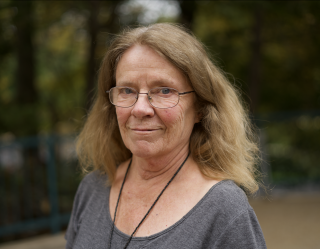
Mel Underbakke is a co-founder and Executive Director of CCF. She holds a doctorate degree in Interdisciplinary Education, and is an educator and researcher, formerly at the University of South Florida. She also founded Friends of Human Rights (FHR) shortly after the arrest of Dr. Sami Al-Arian on terrorism charges in 2003. In 2008 and 2009, after the release of the documentary "USA vs Al Arian", she and Fred Bryant toured the U.S. screening it more than 60 times on college campuses, and in churches, mosques, libraries and community centers. She went on to learn of the many other cases of innocent Muslims who were being targeted by the U.S. government in its ongoing “war on terror," and has focused on calling attention to the current wave of preemptive prosecutions of these innocent people, as well as the erosion of civil freedom that has affected all Americans since 9/11. In 2010, FHR became a founding member of CCF (then called the National Coalition to Protect Civil Freedoms), and Mel served in numerous capacities, including the Board of Directors and Director of Education. Currently she is the Executive Director.
Stephen F Downs, Esq | Chairman Emeritus | swdowns68@aol.com
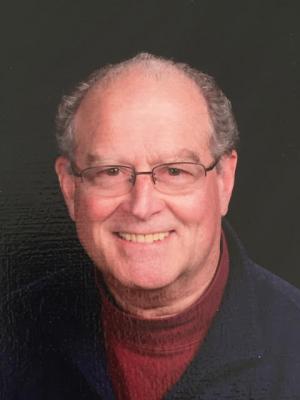
Steve Downs is the former Chair of CCF’s Board of Directors and former Executive Director. He is a 1969 graduate of Cornell Law School, after having served two years as a Peace Corps volunteer in India. Most of his professional career was spent as a Chief Attorney to the NY State Commission on Judicial Conduct, investigating and disciplining or removing unethical judges. After he retired in 2003, he volunteered to work as a defense attorney (with Kathy Manley and others) on a preemptive prosecution of a local Albany NY imam, Yassin Aref, and became convinced that the FBI had deliberately framed an innocent man. This led to his becoming a founding member (with Kathy Manley) of Project SALAM, an organization that tracks and analyzes FBI preemptive prosecutions of political prisoners. In 2010, Project SALAM became one of the founding members of CCF. Downs was the Executive Director of CCF from 2012 to 2014. Downs is also a board member of It Can Happen To You, (ITCHY), an organization that fights wrongful convictions, and was recently able to create, through the NY State Legislature, the nation’s first Commission on Prosecutorial Conduct to investigate and discipline or remove unethical prosecutors.
Hatem Fariz | Chairman Board of Directors | Development Director | Hatem@civilfreedoms.org
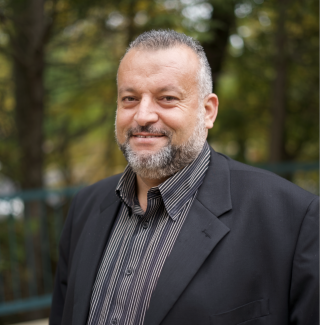
Hatem Fariz is a former political prisoner and serves as the Development Director, treasurer, and a board member of the Coalition for Civil Freedoms. He is currently the executive director of the Islamic Community of Tampa. In 2003, Hatem was targeted in a politically-motivated false terrorism conspiracy case in Tampa, Florida, along with three other Palestinian Americans, due to their activism and charity work for Palestine. Following a 6-month-long trial, the jury failed to convict the men of a single charge. A “graduate of the CMU,” or Communication Management Units, Hatem spent 36 months in what is commonly referred to as “the Gitmo North” prison in Terre Haute, IN, after pleading guilty to a single nonviolent charge to avoid retrial. In total, Hatem spent 4 years and 3 months in prison, much of which was spent in solitary confinement. Hatem has a Master of Science degree in Computer Science Networking and had just embarked on his doctoral studies in the Spring 2003 semester when he was unjustly arrested. He has three sons and hopes to continue graduate school for his PhD in the near future.
Kathy Manley, Esq. | Legal Director | Kathy@civilfreedoms.org
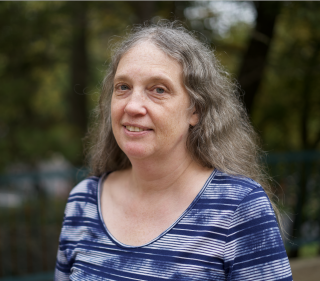
Kathy Manley is the Legal Director of CCF. Now a solo practitioner, Kathy was at Kindlon Shanks & Associates from 1997-2016. Kathy’s main emphasis is criminal defense and constitutional rights. She concentrates on appeals, and has written many winning briefs before the NYS Court of Appeals. Kathy works with many civil rights groups, including Project SALAM, the Muslim Solidarity Committee, and the National Lawyers Guild. She is also the Vice President of the Albany chapter of the New York Civil Liberties Union (NYCLU). Kathy has received many awards for her work, including the Carol S. Knox Award from the NYCLU Capital Region Chapter in 2015.
Sarwat Malik-Hassan | Political Advocacy and Outreach Director | Sarwat@civilfreedoms.org
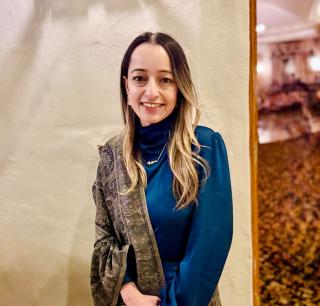
Sarwat serves on the executive board of Women at WorkSpace, a non-profit networking platform for Muslim women living in her native greater New Jersey metro area. Previously, Sarwat served as the Executive Director for Progressive Democrats of New Jersey, a grassroots organization dedicated to electing progressive candidates and pushing for political reform in New Jersey. In the past, she served on the National Muslims for Bernie team of the Bernie Sanders Presidential campaign and was elected as a DNC Delegate for Bernie Sanders in 2020. She continues to dedicate her time simultaneously as an activist and grassroots organizer on numerous domestic and international social justice and human rights issues. Her commitment to working towards a more just, equal, and equitable society are what keeps her motivated on a daily basis. In her personal life, she’s honored and grateful for her many roles. She cherishes being a daughter, sister, wife, and mother, aunt and friend to her loved ones.
Amith Gupta, Esq. | Staff Attorney | Amith@civilfreedoms.org
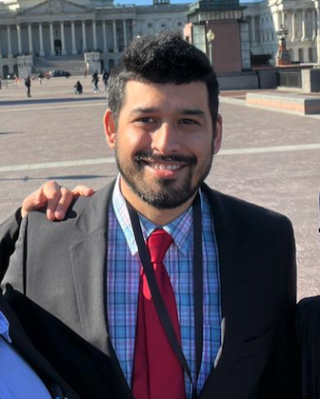
Amith Gupta is a Staff Attorney at CCF. Prior to joining the Coalition, he was a Legal Fellow at Project South, where he focused on issues pertaining to the surveillance of Middle Eastern, South Asian, immigrant, and Muslim communities. Amith earned his Juris Doctor at the New York University School of Law, where he was an Institute for International Law & Justice Scholar. Prior to joining the Legal & Advocacy team at Project South, he worked as an appellate-level public defender in Manhattan. Amith’s studies and activism focus on U.S. foreign policy, war, borders, and the Middle East. Prior to law school, Amith earned his B.A. at Bard College in Political Studies and Middle Eastern Studies. He is originally from the Bay Area of California, but has lived in New York, Spain, Egypt, and Lebanon.
Shelley MacInnes | Family Support Coordinator | shelly@civilfreedoms.org
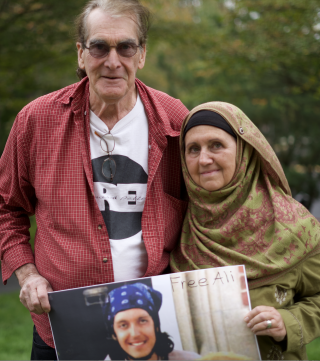
Shelley MacInnes (pictured here with her husband Stuart MacInnes) is CCF’s family support coordinator and the mother of political prisoner Ali al Amriki (Alexander Ciccolo), who was sentenced to 20 years in federal prison. Shelley has been an activist for many causes including racial and social justice, protection of animals, environmental justice and Native American rights. Shelley was a member of a sexual assault/domestic violence prevention coalition. Shelley has emergency medical training and has worked for an EMT in Boston. She works as a director care crisis counselor in an adult dual diagnosis emergency crisis facility. Along with her husband Stuart, Ali’s step-father, Shelley has been an advocate for prison reform and works in a state prison running the Native American spirituality program and sweat lodge ceremony for the prisoners. In honor of their son Ali Shelley and her husband officially started their non profit Ali Center for Truth and Justice which will focus on advocating for political prisoners and prison reform. The Ali Center for Truth and Justice will also offer different programs for activists of social and racial justice, animal rights, and Native American history and spirituality - which will include a sweat lodge ceremony and programs focusing on trauma healing through the arts of music and dance and nature programs. Some personal interests include being an equestrian and working with her husband Stuart on a horse ranch which rescues a number of abused and neglected horses. They are both archers in Archery, the sunnah sport of Islam and love the outdoors and nature.
Jesse McGraw is a passionate activist dedicated to driving positive change in various spheres. As an outspoken figure in the realm of prison reform, Jesse draws from his personal experience, having spent 11 years incarcerated as the first person in US history convicted for hacking Industrial Control Systems —a unique perspective that fuels his commitment to advocate for justice and systemic improvements. This pivotal experience not only shaped his understanding of the prison system but also ignited a purpose for cybersecurity activism. Beyond the confines of physical spaces, Jesse is an influential speaker at cybersecurity conferences, leveraging his insights to contribute to discussions on ethical hacking, cybersecurity, and the intersection of technology and justice. His advocacy extends to sharing his knowledge and experiences at cybersecurity conferences, where he addresses audiences on the importance of ethical considerations in the digital realm. Jesse McGraw's multifaceted activism exemplifies his dedication to fostering positive change both within the criminal justice system and the evolving landscape of cybersecurity.
Board of Directors
Hatem Fariz | Chairman Board of Directors | Development Director | Hatem@civilfreedoms.org
Ghassan Ballut | Al-Nahda and former political prisoner | gballut62@gmail.com
El-Hajj Mauri' Saalakhan | Executive Director, Peace Thru Justice Foundation | peacethrujustice@aol.com
Fahd Ahmed | Executive Director, DRUM | fahd@drumnyc.org
Jonathan A. C. Brown | Professor, Georgetown Univerrsity | brownj@uchicago.edu
Lynne Jackson | Project Salam | lynnejackson@mac.com
Sara Flounders | International Action Center (IAC) | flounders.sara16@gmail.com
Sonali Sadequee | Family Member Representive | ssssonali@yahoo.com
Zahid Bukhari, PhD | ICNA-CSJ | zahid.bukhari@gmail.com
Zahra Billoo | Executive Director, CAIR-SFBA | zbilloo@cair.com
